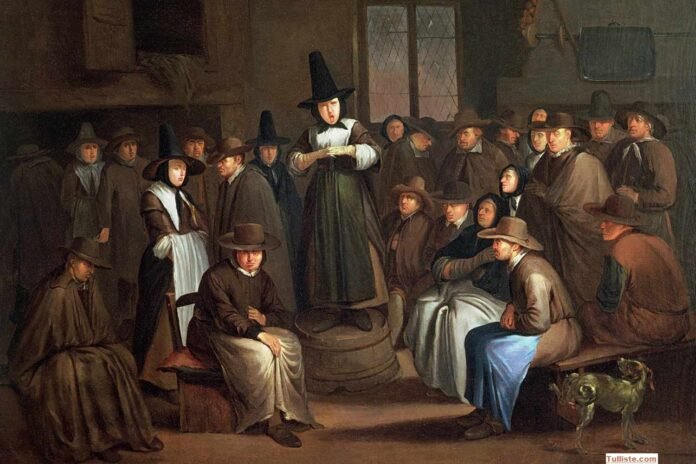Introduction to the Quaker Faith
Welcome to a journey through the Quaker faith from a Protestant perspective! In this blog post, we will delve into the rich history, key beliefs, and impactful practices of the Quaker movement. Get ready to explore the unique traditions and contributions of Quakers within the larger Protestant landscape. Let’s uncover what sets this community apart and how their values have shaped social justice movements around the world. Join us as we unravel fascinating insights about the Quaker faith that may surprise you!
Key Beliefs and Practices
The Quaker faith, rooted in simplicity and equality, holds key beliefs that set it apart from other Protestant denominations. One of the central tenets is the concept of the Inner Light, where believers believe that each person has a direct connection to God. This belief leads to practices such as silent worship, where individuals gather in silence to listen for spiritual guidance.
Another core belief is the commitment to pacifism and nonviolence. Quakers reject all forms of violence and advocate for peaceful resolutions to conflicts. They also value integrity and honesty in all aspects of life, striving to live out their faith through actions rather than just words.
In terms of practices, Quakers often engage in social justice activism, working towards equality and human rights for all individuals. Their commitment to simplicity extends not only to material possessions but also reflects in their way of living with humility and compassion towards others.
History of the Quaker Movement
The Quaker movement traces its roots back to mid-17th century England when George Fox, a young seeker dissatisfied with traditional religious practices, began preaching a message of spiritual equality and direct communion with God. Fox’s radical ideas attracted followers who came to be known as the Religious Society of Friends.
Quakers faced persecution for their beliefs, including refusal to swear oaths or participate in formal ceremonies. Despite this opposition, the movement spread rapidly across Europe and eventually reached North America.
In the New World, Quakers played a significant role in social reform movements such as abolitionism and women’s rights. Their commitment to pacifism and equality influenced many aspects of American society.
Today, Quaker communities can be found worldwide, continuing their legacy of simplicity, peace, integrity, community, equality, and stewardship. The history of the Quaker movement is one of resilience in the face of adversity and unwavering dedication to living out their faith principles in everyday life.
Differences from Other Protestant Denominations
The Quaker faith stands out from other Protestant denominations in several key ways. One significant difference lies in their belief in the concept of Inner Light, which emphasizes the presence of God within each individual. This spiritual principle guides Quakers in decision-making and living a faithful life.
Another distinctive aspect is the Quaker practice of silent worship. While many Protestant churches have structured services with pastors leading prayers and sermons, Quakers gather in silence, waiting for divine inspiration to speak through anyone present.
Quakers also reject traditional sacraments like baptism and communion, focusing instead on direct communion with God through prayer and meditation. This simplicity underscores their dedication to a personal relationship with the Divine without elaborate rituals or hierarchy within their communities.
These unique characteristics set Quakerism apart from mainstream Protestant beliefs and practices, fostering a deeply introspective and egalitarian approach to spirituality.
Influence on Social Justice and Activism
The Quaker faith has a long history of advocating for social justice and actively engaging in various forms of activism. From the early days of the movement, Quakers have been at the forefront of promoting equality, peace, and human rights.
One key aspect of Quaker influence on social justice is their commitment to non-violence and peaceful resolution of conflicts. This stance has led many Quakers to participate in anti-war movements, civil rights protests, and campaigns against injustice around the world.
Quakers are known for their strong belief in equality and inclusivity. They have been instrumental in fighting against discrimination based on race, gender, sexual orientation, and other factors. Their dedication to standing up for marginalized communities sets them apart as advocates for societal change.
Through their actions and advocacy efforts, Quakers continue to make a positive impact on social justice issues globally. Their unwavering commitment to principles of equality and peace inspires others to join them in creating a more just and equitable world.
Misconceptions and Controversies Surrounding the Quaker Faith
Misconceptions and controversies often surround the Quaker faith, stemming from misunderstandings about their beliefs and practices. One common misconception is that Quakers are a closed-off, secretive group when in reality they welcome visitors to their meetings for worship with open arms.
Another controversy is the perception that Quakers are passive individuals who avoid conflict at all costs. However, Quakers believe in peaceful resolution but also actively engage in social justice issues and activism.
Some may wrongly assume that all Quakers dress in traditional clothing or live a simplistic lifestyle reminiscent of centuries past. While some choose to do so as an expression of their faith, it is not a universal practice among modern-day Quakers.
Despite these misconceptions, the Quaker faith continues to thrive and make meaningful contributions to society through its commitment to peace, equality, and social justice.
Conclusion
The Quaker Faith is a unique and influential Protestant denomination that emphasizes simplicity, equality, and social justice. With its rich history, distinct beliefs and practices, and commitment to activism, Quakerism continues to inspire individuals around the world to live out their faith in meaningful ways. Despite misconceptions and controversies surrounding the faith, the Quaker movement remains a beacon of light for those seeking a spiritual path grounded in peace, equality, and love for all. Embracing diversity, advocating for justice, and embodying simplicity are just some of the ways in which Quakers continue to make a positive impact on society today. As we reflect on the legacy of the Quaker tradition from a Protestant perspective, may we be inspired by their example to strive for a more just and compassionate world for all.


